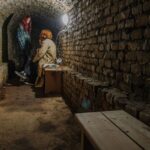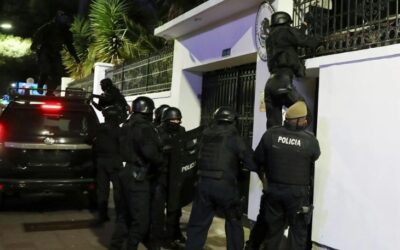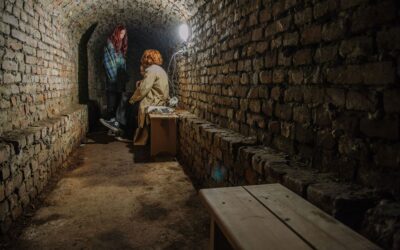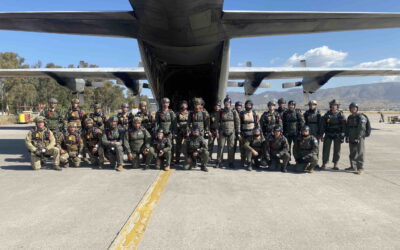Images from Russia’s strike in the heart of Odessa, which hit the so-called “Harry Potter Castle”, a former politician’s mansion now…
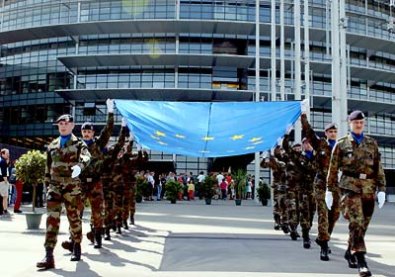
Countries of the European Union took the initiative to reform the EU’s decision-making process on defence and foreign policy, an issue that has long divided the 27.
Belgium, Finland, France, Germany, Italy, Luxembourg, the Netherlands, Slovenia, and Spain have formed a “group of friends” and are calling for a qualified majority in foreign policy and EU common defence decisions. Currently, the voting process for such decisions is governed by unanimity.
This proposal aims to improve the efficiency and speed of the decision-making process of European diplomacy, the countries said in a statement released in Berlin.
In the context of the aggressive Russian war in Ukraine and the growing challenges at the international level, the members of the “group of friends” are convinced that the decision-making process must be adjusted. Similar attempts had been made in the past, without any success.
The small countries of the European family mainly express fears that their voice will no longer be taken into account if they lose the veto option. Small countries estimate that they may lose out if all decisions are made by a qualified majority, as is currently the case for most EU affairs, with the exception of certain areas such as foreign and security policy.
Also read: EDA | Successful completion of FUSS project phase I
This type of vote requires the agreement of 15 of the 27 countries, provided they represent more than 65% of the EU’s 450 million inhabitants. It, therefore, favors France and Germany, the two countries with the largest population in the EU.
If a simple majority of EU countries (14 out of 27) are in favor of starting a treaty amendment process, negotiations may commence.
However, unanimity is necessary among the 27 to ratify a treaty change and some countries could also organize a referendum, which would be an additional hurdle.
In 2005 French and Dutch voters rejected the treaty in a referendum, which would establish a Constitution for Europe.
The countries, which support a reform, said they want to coordinate their action with that of the European institutions and to closely cooperate with all member-states, inviting other countries to join.
Also read: Ukraine | European Union launches Military Assistance Mission
READ MORE
France | Industries prioritize orders of anti-aircraft missiles
The Armed Forces Ministry of France has instructed industries involved in the production of Aster anti-aircraft and anti-ballistic…
Ecuador | Appeals to International Court of Justice denouncing Mexico
Ecuadorian police stormed the Mexican embassy hours after the Mexican government granted former Vice President…
Russia | Cluster bombs hit residential area in Odessa
Images from Russia’s strike in the heart of Odessa, which hit the so-called “Harry Potter Castle”, a former politician’s mansion now…
France | Industries prioritize orders of anti-aircraft missiles
The Armed Forces Ministry of France has instructed industries involved in the production of Aster anti-aircraft and anti-ballistic…
Ecuador | Appeals to International Court of Justice denouncing Mexico
Ecuadorian police stormed the Mexican embassy hours after the Mexican government granted former Vice President…
Remote Modular Terminal | The US Space Force’s new weapon system
The US Space Force has unveiled its new Remote Modular Terminal (RMT) weapon system. The system has completed its…
Latvia | Citizens are asked to turn basements into air raid shelters
Latvian authorities have called on citizens to turn their basements into air raid shelters, causing concern.
HNDGS | Greece – USA bilateral exercise “STOLEN CERBERUS XI” – Photos
From Monday 15 to Friday 26 April 2024, the bilateral exercise “STOLEN CERBERUS XI” took place under the coordination…












